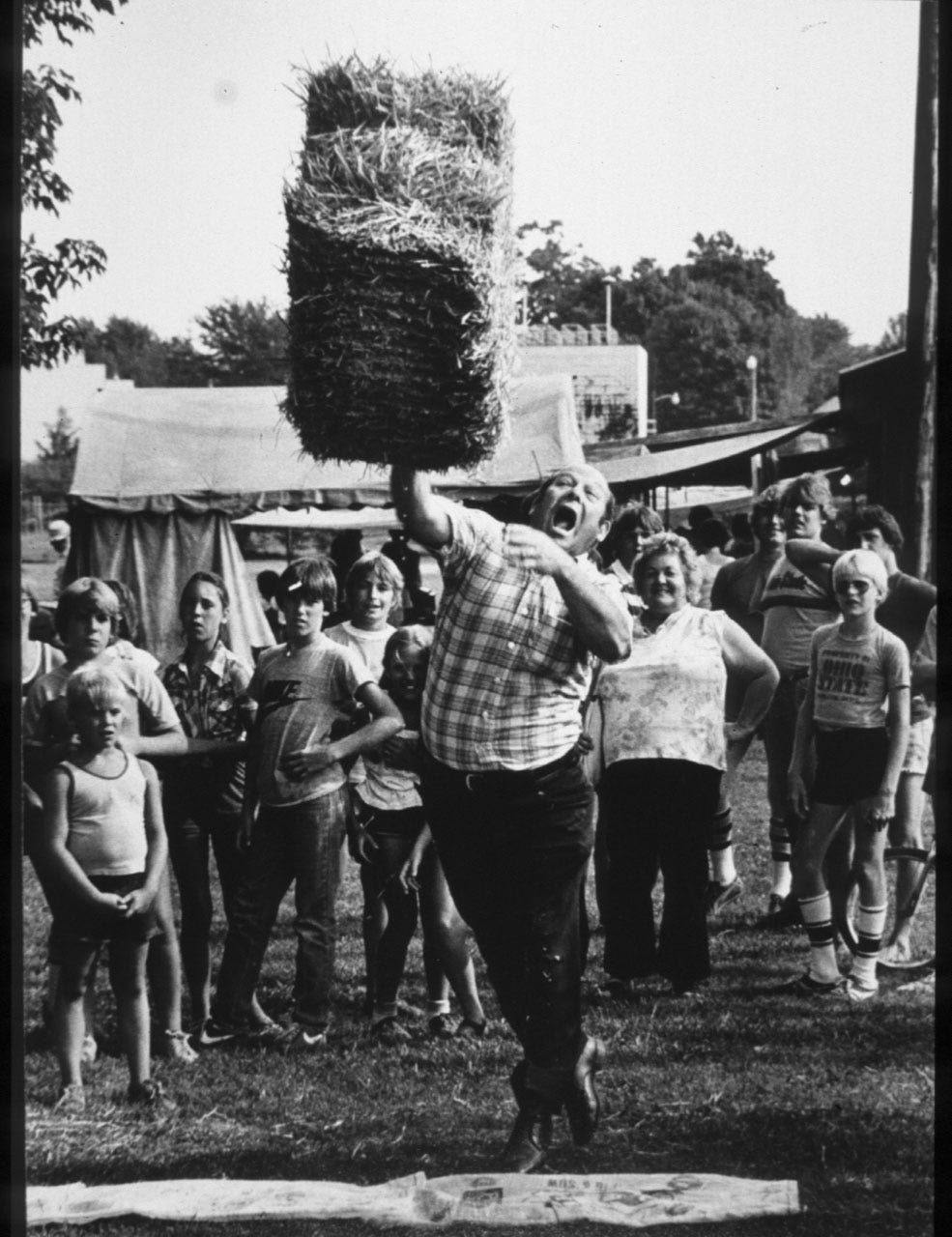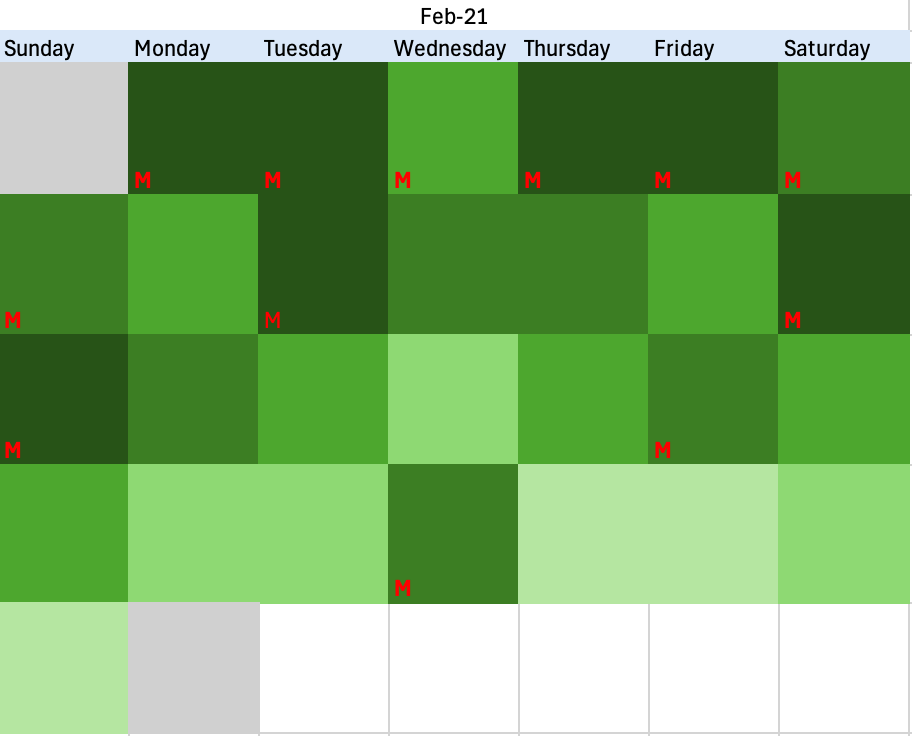Blog Extravaganza 2025: the winners
YEEHAW
Back in May, I announced the Second Annual Experimental History Blog Post Competition, Extravaganza, and Jamboree. The prompt was “send me a never-before-published blog post, and if I like it I’ll post about it and send you cash.”
I got 109 submissions from folks all over the world, including consultants, PhD students, entrepreneurs, doctors, grandmas, professors, software engineers, teachers, pseudonymous weirdos, and several people who described themselves as “indescribable”. Here are the winners!
FIRST PLACE: 100,000,000 CROWPOWER AND NO HORSES ON THE MOON by Taylor Troesh
Here’s the most important, most incomprehensible, and most annoying question facing humanity right now: what is intelligence, anyway? Tackling this question is like bellyflopping off the high dive—it hurts to do, and it hurts to watch. But Troesh does it in the most delightful and unexpected way: he gives you a bunch of insightful answers and thwacks you on the head between each one. There is no way to summarize this piece, but here’s a lil snippet that comes after Troesh suggests using crows to emulate transistors:
There is only one way to make salt; salt molecules cannot be “more salty” or “less salty”. But there are infinite ways to make pepper -- a messy blend of biomolecules created by messy genomes created by messy selection pressures.
If intelligence is like salt, then crows are very expensive (and cute) transistors. If intelligence is like pepper, a murder could someday be President of the United States.
This is exactly the kind of thing that blog posts are for.
Troesh’s bio:
Taylor Troesh is a self-proclaimed “connoisseur of crap”. He is currently building Scrapscript among many other projects. To support his work, you can hire him to solve “nasty” problems. You can read more of Taylor's work at taylor.town.
SECOND PLACE: What Ethiopian runners taught me about reading scientific literature, Or, how to go from overeating Italian food to winning marathons, if you are Ethiopian by Chenchen Li of Dendrite
One of the best things a blog post can do is find some obscure source that you would never read and turn it into a short-ish post that you will read. This isn’t just summarizing—it’s pre-chewing the material so it’s easier for you to digest. Call it mama birding.
I’m never going to read a book about a PhD student/marathon runner who goes to train in Ethiopia, but I will read what Chenchen Li says about it. There’s some excellent curating here, but more importantly, there’s great chewing. My favorite line:
if you make life especially difficult once in a while, just for fun, it can make you feel like you’re on the edge of what’s possible—like no one else is “dangerous” enough to do what you do.
Li’s bio:
Chenchen Li is a biophysics PhD and does neuroscience research.
THIRD PLACE: Did Cheetos try to incite a rebellion in 2008? by Rabbit Cavern of Rabbit Cavern
Apparently, in the late aughts, Frito-Lay decided to encourage people to do terrorism in the name of Cheetos. Hundreds of fans uploaded videos of themselves performing “random acts of Cheetos”, and the official campaign website included a Cheetos-themed version of the Anarchist Cookbook. It wasn’t all fun and games, though:
there’s about a 90% chance that someone hired by Cheetos for their online marketing efforts also accidentally(?) uploaded MILF porn to the official Cheetos account instead of their personal account.
Gonzo cultural history is a genre that thrives in blog post form, and Rabbit Cavern is thriving.
Rabbit Cavern’s bio:
Rabbit Cavern is a blog that explores the question, “Can the rabbit hole be too deep?” Each post seeks to gather all the most fascinating information about any given topic, answering questions like “Why is Pepsi obsessed with airplanes?” or “Did Benedict Arnold commit treason because his legs hurt?”
HONORABLE MENTIONS
There were too many good posts to recognize all of them, but here are a few that stood out in particular ways:
MOST PROVOCATIVE: Experiments as Performance Art by Kevin Munger of Never Met a Science
You’re supposed to get an Institutional Review Board to approve any research project that aims to produce “generalizable knowledge”. Munger contends that randomized-controlled trials do not produce generalizable knowledge. Therefore, you’re free to run an RCT without an IRB. In Munger’s view:
RCTs are best understood as a formal kind of performance art. Each society enjoys performances in the idiom of their respective culture. Martial societies find pleasure in ritual combat; religious societies in pious displays of devotion and or spiritual rapture. [...] Our society is scientific, even scientistic. We appreciate the performance of scientific rituals, big data crunching and demonstrations of control over nature or our fellow citizens.
BEST GRAPHS AND WEIRDEST QUESTIONS: How Much Do You Value a Year of Life? by Deena Mousa of Under Development
What’s one year of full health worth to you? Turns out that for many people, it’s somewhere between a used car and a new one.
THE POST THAT MOST GOT MY GOAT IN A GOOD WAY: Psychology Experiments are Gardens, Not Digsites by Jared Peterson of A Failure To Disagree
What can we actually learn from a psychology experiment? I think basically every problem in psychology traces back to the fact that we never ask that question. Peterson both asks and answers it, and while I disagree with some of what he claims, he makes a good case for it. And most importantly, he solves a big mystery: why does Wikipedia always ask for donations while saying “nobody donates to us!” when all of behavioral science suggests they should say exactly the opposite?
BEST RATIO OF HOW INTERESTING THE POST IS COMPARED TO HOW INHERENTLY INTERESTED I AM IN THE UNDERLYING TOPIC: College Sports is Now Just a Monopoly with First-Degree Price Discrimination and a Labor Market with Lopsided Bargaining Power by Matt Naven of EconSquawk
I am really really not a sports guy. But I have to give it up for Naven’s extremely detailed post about why recent legal and policy changes are on track to destroy everything that people like about college sports.
BEST ATTEMPT TO USE DATA TO STOP YOUR HEAD FROM HURTING: Tolerating Lactose Intolerance – A Self Experimentation by Ann Coyne
A snapshot of Coyne’s attempt to eliminate her migraines by eliminating dairy (darker = worse mood, M = migraine):
BEST POST ABOUT WORKING IN A BAR AS A TEN-YEAR-OLD (AMONG OTHER THINGS): Notes on a Childhood by Raheem Omeiza of Spontaneous Oddities
My aunt had a beer parlor, and we (my cousins and I) helped out sometimes during rush hours. That was where I learned, at 10, that older men had weak bladders and I had to remind them to go; otherwise, they’d pee themselves.
THE ONE THAT HIT ME IN MY SOFT SPOT: Let the Pepsi-Poptart Guy by Cheryl Hooley
I have a soft spot for letters from parents to children:
I will always hold a litany of hopes and dreams for you that I will never share because they are mine for you, not yours. [...] You do not need my approval to own your decisions. But for the love of everything holy, own them! That means sometimes being able and willing to respectfully defend and discuss them. Everyone in every facet of their lives will have to learn how to do this so we might as well get good at it.
YEEHAW
And with that, I hereby call to a close the 2025 Experimental History Blog Post Competition, Extravaganza, and Jamboree. Thanks to everyone who submitted, thanks to all of you for reading, and thanks to the paid subscribers who make both this blog and this jamboree possible. Because of you, the jamboree continues eternally in our hearts.





To be honest, I don’t know how to properly thank someone on this platform, but I feel like this is a good place to start. Thank you, Adam, for hosting this jamboree, extravaganza, etc. It was the most fun. And I know I speak for a lot of people when I say thank you for making a blog that is eye-opening, silly, and authentic. It’s simply just the best.
Who is this Cheryl Hooley and why doesn't she have her own blog? Her piece hit me hard, and perfectly articulated a conversation I've been trying to have with my adult child (mostly inside my own head). Thank you, Adam, for the seeing the genius in this post and bringing it to the rest of us!